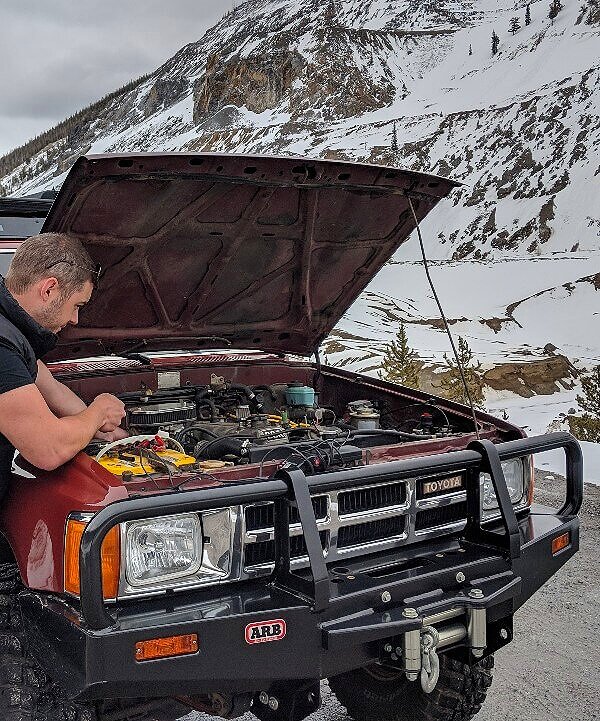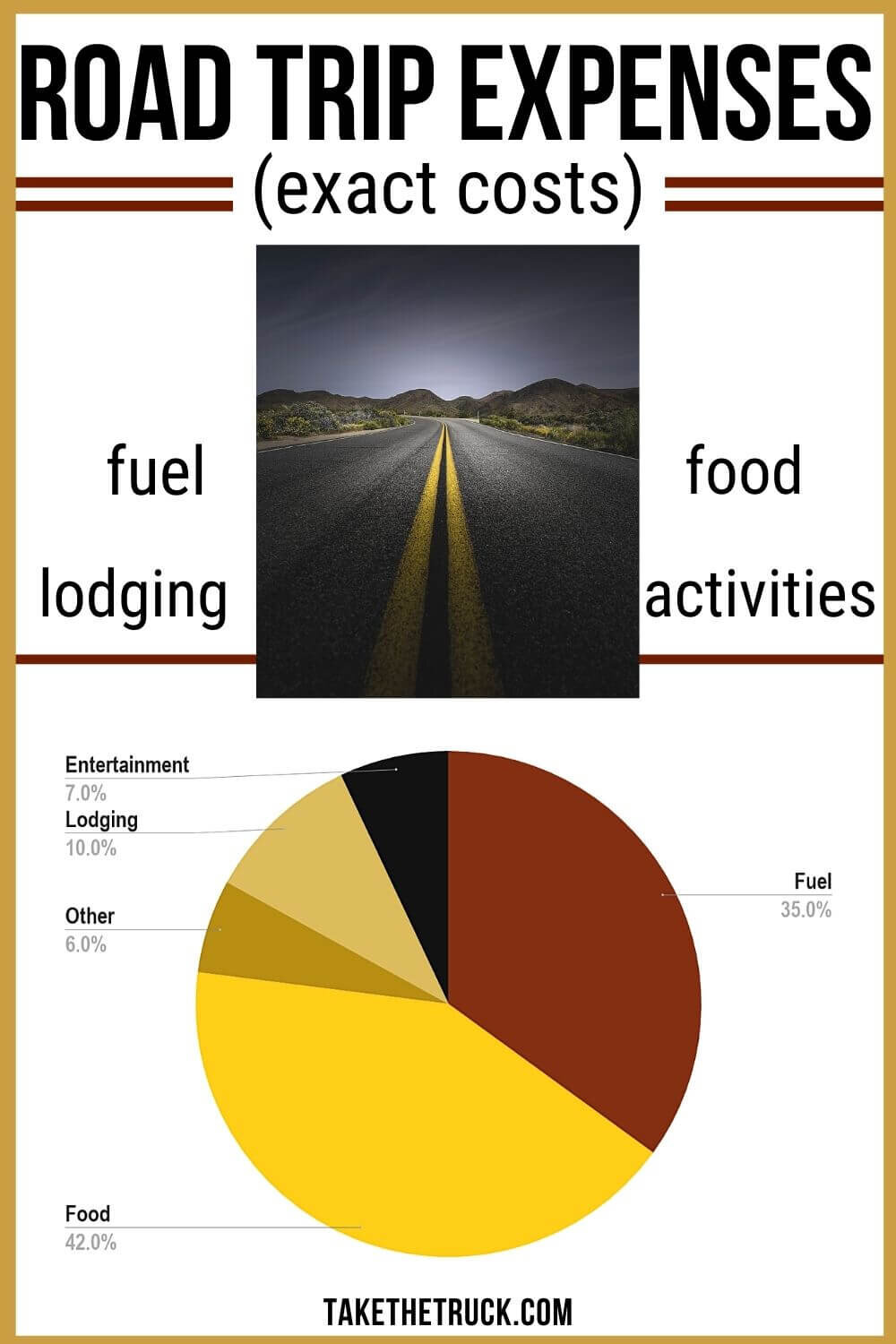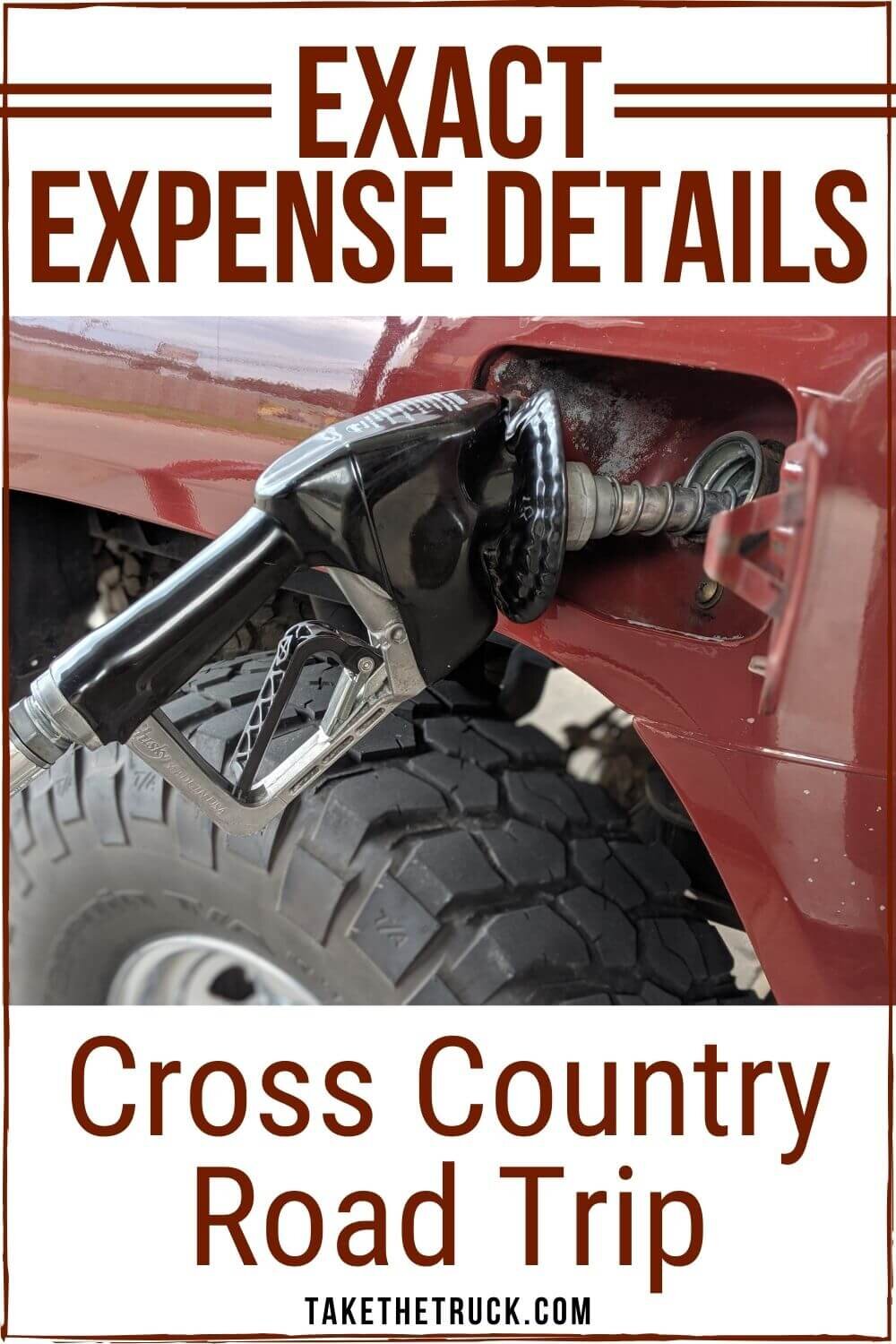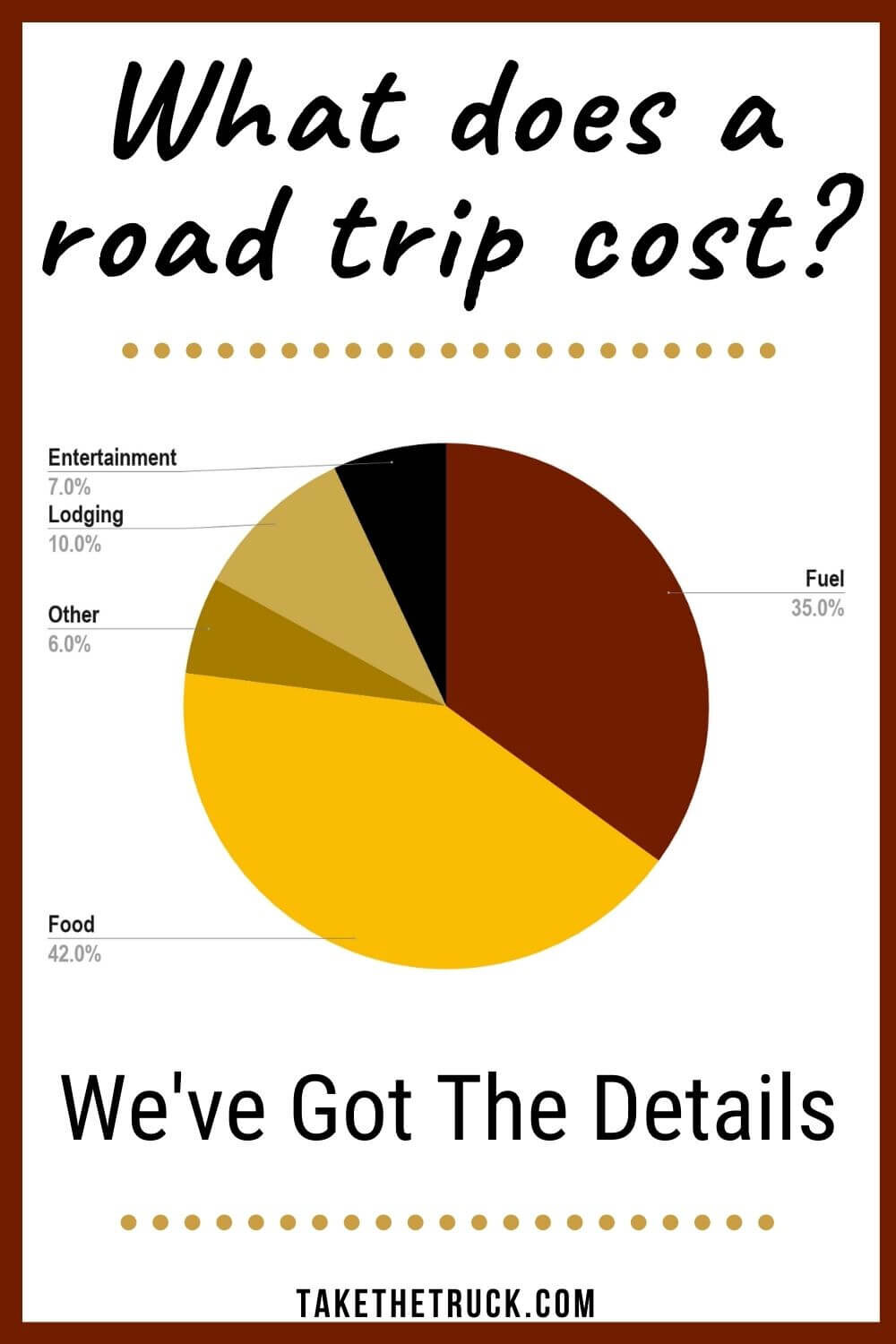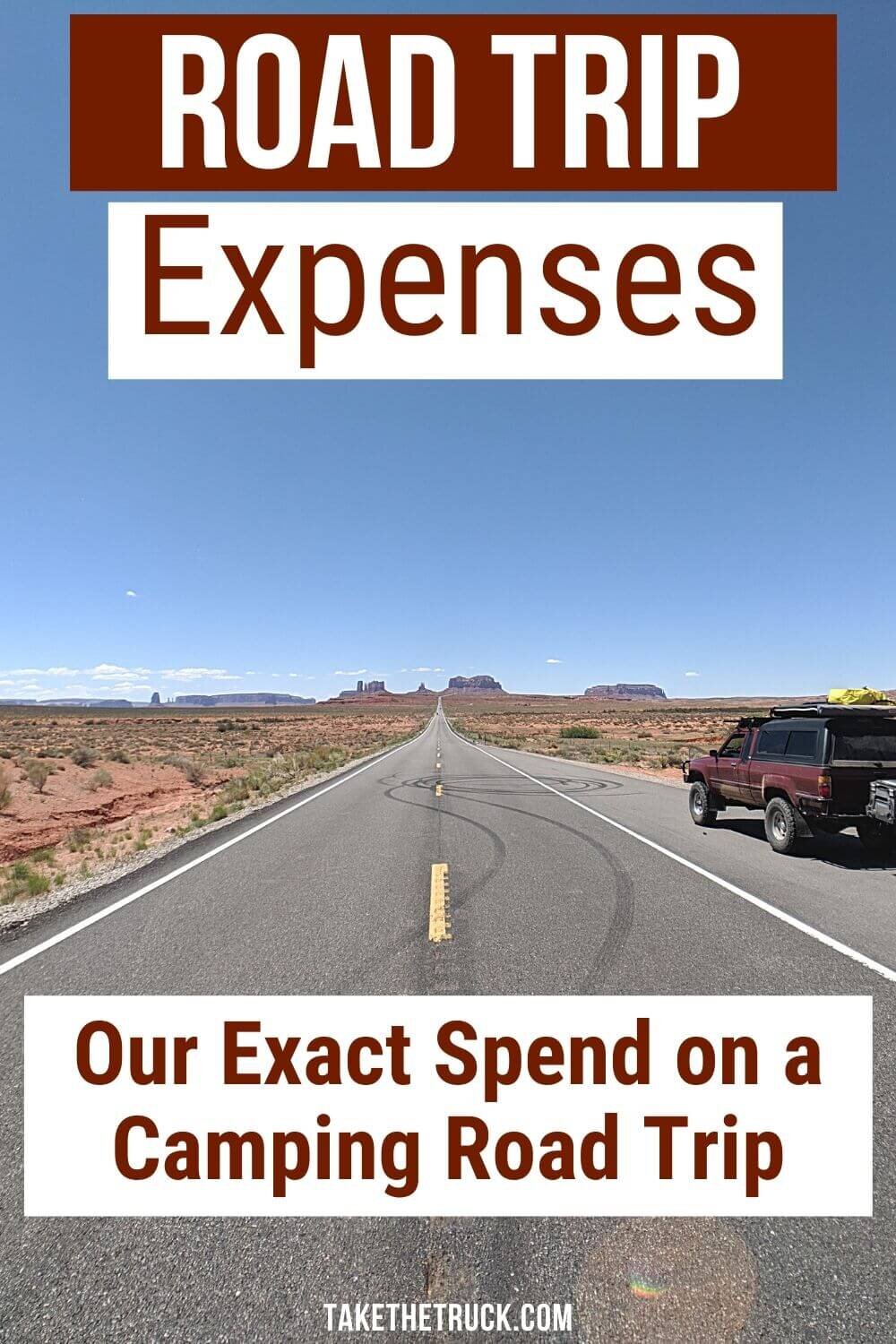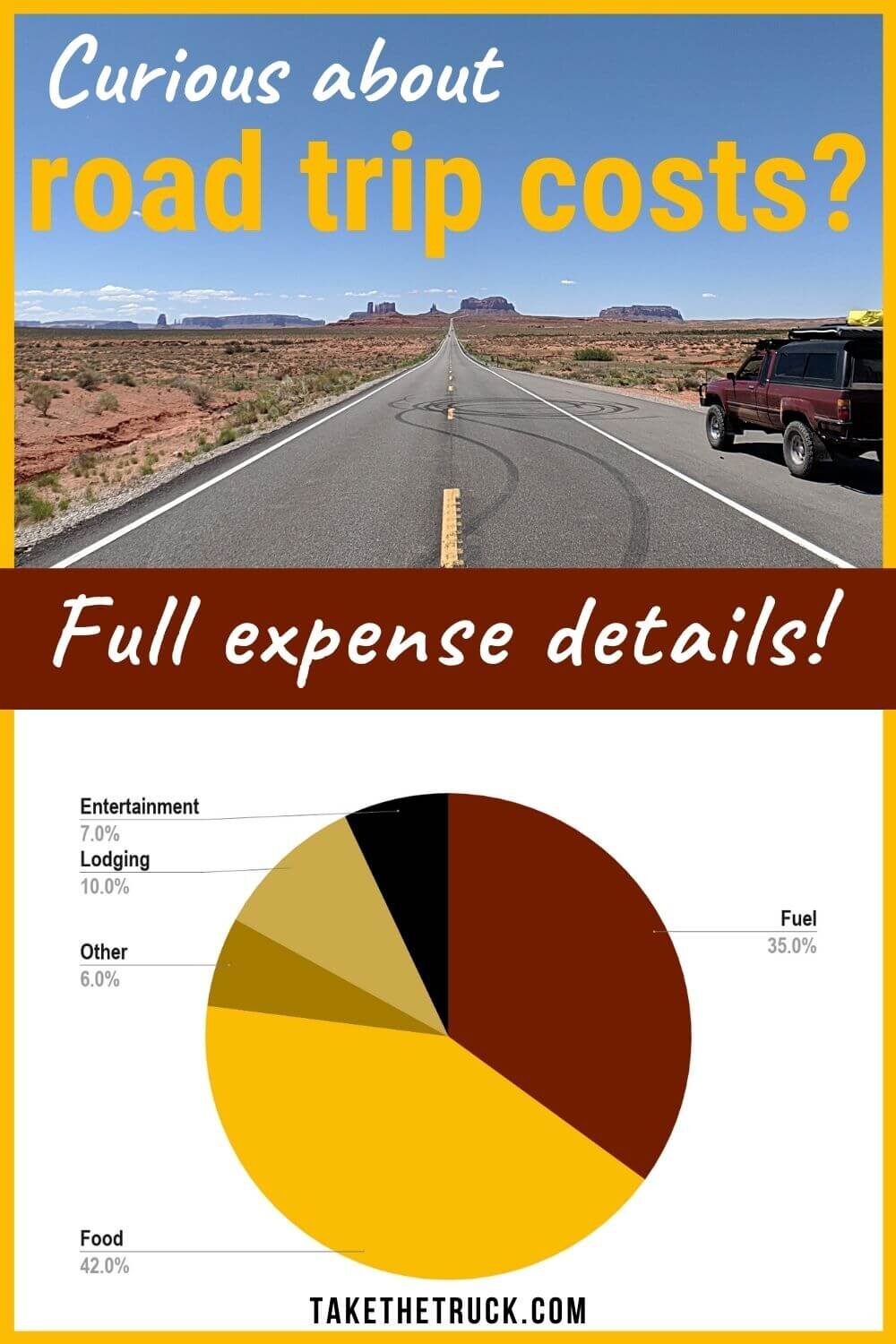What a Cross Country Road Trip Costs
When planning a cross country road trip, it’s difficult to estimate how much the whole thing will cost. But for most people, having a realistic road trip budget is essential.
We’ve taken extensive road trips all over the United States, either with a tent camping setup or a small camper of some sort. We’ve always tracked our spending and today we’re organizing all that information in hopes that it can help you see how much a road trip across America may cost you!
The specific amounts we reference are based off a 4 week road trip for a family of three (2 adults and a preschooler), traveling 4,000 miles in a 1984 Toyota pickup turned truck shell camper. We also give some insight into how that cost compares to other cross country road trips when we’ve traveled differently - with a larger camper, as a couple, with a tent, to different areas of the country, etc.
Before jumping in to this post, you might find it helpful to read 10 Budget Road Trip Tips: Cross Country Travel on the Cheap to better understand HOW we travel, and then you’ll know how closely our road trip budget may relate to yours.
*(This post contains affiliate links. This means we may receive a small commission, at no additional cost to you, if you make a purchase through a link. See our full disclosure.)
Cross Country Road Trip Budget and Cost
When trying to figure out how what your road trip cost will be, we recommend that you break down your road trip budget into the following 5 categories:
Lodging and Related Expenses
Food
Fuel
Entertainment and Related Expenses
Other
Plus Access to an Emergency Fund
1. Road Trip Cost on ‘Lodging and Related’
Things Like: campsites, pay showers, filling propane, laundromats, paying to dump tanks or fill water, hotels
Over the years, we’ve become skilled at dry camping (camping with no hook ups), and our truck shell camper setup makes this easy to do. We enjoy being off grid, away from hook ups, and usually away from other people!
Which works out great, because that means we typically camp for free.
Even with free camping, you may still run into paying $2 - $10 fees to dump black water tanks, fill tanks with water, top off your propane tank, or use shower facilities as you’re on the road. Although often, many of these things can be done for free.
However, if you aren’t interested in or set up for boondocking / dry camping / primitive camping, etc., expect to pay at least $10-25/night at most basic campgrounds. Campgrounds with full hookups and amenities (pools, laundry facilities, etc) will cost significantly more than that (upwards of $50 per night!).
Our Lodging Spend & Details:
We spent $217 on all things related to lodging during a recent 4 week trip, which was 10% of our total road trip budget.
This included 1 night at a hotel (just over $100) and 2 nights to park overnight in a parking garage ($50 total) during a snow storm, leaving about $65 that got eaten up by propane, pay showers, laundry, and a mandatory purchase of these toilet-in-a-bags* in order to camp on BLM Land in Moab, UT.
Less than $7/day.
How That Cost Compares to Our Other Road Trips:
We’ve always spent around 10% of our total budget towards lodging and related expenses during cross country road trips.
When we traveled with a tent, our spend was slightly higher because we’d land at a hotel every week and a half or so.
When we traveled from our Toyota Sunrader RV, our spend was a bit lower because we had larger holding tanks, an indoor kitchen, bath, and more space to be comfortable camping no matter the weather conditions (basically, we never felt the need or desire to pay for a hotel to be able to get a reset).
2. Road Trip Cost on ‘Food’
Things Like: groceries, gas station snacks and drinks, restaurants, ice cream, fast food
Taking shelter in a parking garage while using our outdoor truck camper kitchen
In our experience, it isn’t realistic to keep your road trip food budget (including groceries, restaurants, all food and drink related expenses) the same as what you adhere to at home.
Here’s why:
1) It’s hard to stick to normal grocery shopping habits when stopping in at new and unfamiliar stores and markets
2) prices vary during a cross country road trip
3) you’re going to want to experience some local meals
4) you’ll want some fast food during a long driving day
5) you may make the move towards convenience food when grocery shopping (like frozen precooked chicken over dealing with raw meat) - and you’ll pay for that convenience
6) those little $6 and $8 ice cream stops add up
7) and sometimes you just won’t want to make your own coffee! And if outdoor cooking is your only option, then
8) you might find yourself willing to fork over extra money at restaurants to keep from cooking in the driving rain and sleet.
All those little changes can make a decent sized hole in your budget!
Our Food Spend & Details:
We (2 adults and a 3 year old who eats like a teenager) spent a total of $929 on food related expenses during our recent 4 week road trip, which was 42% of our total budget. This is about $375 more than we would spend while at home for a month.
We aren’t really happy with this number, but we already ate it all so there’s not much we can do about that. Here’s the breakdown:
Groceries, including what we packed up from home: $647
Restaurants: $185
Fast Food: $63
Treats: $34
That comes to $29/day.
Again, almost $1,000 on food in a month for our family of three really shocks us, and if your road trip budget requires this number to be lower, we certainly think that could be done without all that much effort.
How That Cost Compares to Our Other Road Trips:
Typically, we’ve spent around 30% of our total budget towards food (about $20/day).
Previously, we’ve traveled with an indoor kitchen and freezer. Before leaving, I’d make multiple meals to freeze and be eaten during the trip. This made pulling over to prepare a quick meal a breeze.
Weather also didn’t play a part in our ability to cook. So going out to eat or grabbing fast food didn’t often feel like something we needed to do (although we certainly still did that).
And having a full indoor kitchen with a real sink, etc, didn’t push us towards buying that more expensive convenience food from the freezer isle of the grocery store.
3. Road Trip Cost on ‘Fuel’
Things Like: just good ol’ gasoline (this doesn’t include any vehicle maintenance that might come up)
We’ve got a few tips in this post on saving money on gas, but outside of having a vehicle that gets better gas mileage, traveling solely when fuel prices are down, or sticking closer to home, there’s not a whole lot we’ve found to do!
Most of our road trips have been behind the wheel of an older vehicle, and sometimes while towing extra weight. Our average MPG has been around 16. So depending on your adventure mobile, you may not be filling up as much as us.
If you pretty much know your planned route across America, it isn’t difficult to total up the approximate number of miles you’ll be traveling, know your vehicle's MPG, and the nation’s average cost per gallon. From there you can get an estimate on fuel costs for your trip.
Our Fuel Spend & Details:
We spent $764 on fuel on our most recent 4 week trip, which was 35% of our total budget.
We traveled just over 4,000 miles in our 1984 Toyota Pickup, averaging 15 MPG. The average price per gallon was $2.84.
$24/day on fuel.
How That Cost Compares to Our Other Road Trips:
We’ve spent anywhere from 35-50% of our budget on fuel over the years, depending on the number of miles traveled and the average price of fuel.
4. Road Trip Cost on ‘Entertainment and Related’
Things Like: entrance fees, related parking fees or public transportation, state park day-use fees, paid tours
Stopping for a dip (and shower!) at the hot springs pool in Ouray, Colorado.
We typically gravitate away from crowds and tourist traps when traveling across the USA, keeping this cost lower than average.
We find that we enjoy outdoor entertainment, national parks, and state parks over city attractions and tourist areas. Which, lucky for us, the former costs significantly less than the latter.
(If you’re doing a national parks road trip, be sure to get the Annual America the Beautiful National Parks Pass!)
If some of your destinations are major cities, keep tolls, public transportation fees, and parking fees in mind.
It may also be wise to plan out your must-do-in-this-certain-city activities in advance so you can have a good grasp on what each city will cost you. Don’t forget to add some extra food money for each major city, as you’re probably going to want to go eat somewhere over getting back to your camp kitchen to cook!
Our Entertainment Spend & Details:
We spent $147 on fees related to entertainment over our recent 4 week trip, which was 7% of our total budget.
$80 of this was on the Annual National Parks Pass that we’ll use all year. We also visited Deadhorse State Park at sunset ($20), paid for a permitted hike in Sedona, AZ ($11), and spent a day at a hot spring pool in Ouray, CO ($36).
Less than $5/day (and that’s including the 1 time purchase of the National Parks Pass).
How That Cost Compares to Our Other Road Trips:
Our entertainment related costs have always come in at less than 15% of our total budget during our road trips.
Entertainment varies greatly between individuals and the stage of life. The things we would have spent money on before becoming parents are really different than what we spend money on now!
And there are plenty of unplanned opportunities that come up, so budgeting ahead of time too tightly for your spend in this category might be limiting. So plan what you can ahead of time, and then leave some wiggle room!
5. Road Trip Cost on ‘Other Expenses’
Things Like: vehicle maintenance, random purchases like dog food, alcohol, gifts, shopping
Some of these road trip costs are avoidable, while some just aren’t.
They tend to add up, and sometimes aren’t planned for, so have an allotted amount in your budget for these types of purchases, and then practice telling yourself no if/when needed!
Our Other Spend & Details:
We spent $140 on things that fall under this category over the course of our recent 4 week trip, which was 6% of our total budget.
We hit up some consignment shops to look for warmer clothing, had some drinks, washed mud off the truck multiple times ($37!!!!), and had some random needed purchases like sunscreen and hose clamps. Just over $4/day.
How That Cost Compares to Our Other Road Trips:
Our spend in this category has always been less than 10% of our total budget.
We used to travel with more space (and money!), and when you have more of those things you tend to collect more stuff along the way. But even then, the costs in this area have never been terribly high!
Don't Forget! Emergency Fund
For, you know, emergencies. We recommend at least a $1,000 emergency fund.
Health or vehicle related problems don’t always come with a warning and you don’t want to be up a creek all the way across the country. If you get in a bind during your trip, you need to have access to an additional chunk of change as your emergency fund. We also highly recommend having a national roadside assistance membership like Good Sam Roadside Assistance or AAA before heading out on any road trip in the USA.
Another Road Trip Cost Detail Worth Noting!
When we total our road trip expenses, we end up with two different figures.
Our Total (or Gross) Spend: how much money actually left our wallet during the trip
The Road Trip (Net) Cost: how much the trip cost relative to what we would have spent at home during that same time
For example, during our spring 2019 road trip (about 4 weeks long), we spent $647 on groceries. If we would have been home for that month, we would have spent about $450 on groceries anyway. So although we spent about $650 on groceries during the road trip, it actually only cost us $200 additional from what our “normal” living expenses at home would have been.
So that is something to consider when planning! Knowing your base spend on necessities during your “normal” life can help put the cost of a road trip into perspective. Especially if you aren’t having to pay on any debts or mortgages as your travel.
Road Trip Total Spend and Cost
A just over 4 week road trip from a 1984 Toyota Pickup with a truck shell camper for a relatively budget conscious family of three, traveling 4,032 miles when the average gas price was at $2.84 per gallon and camping for free:
Total Spend:
Lodging and Related: $217
Food: $929 (Eeek! Still can’t get over this one!)
Fuel: $764
Entertainment and Related: $147
Other: $140
Total Spend: $2,197
Total Cost:
Knowing our base costs on food and fuel when home, and considering average spend on camping, entertainment, etc. while at home, we would have spent about $825 anyways during the month we were gone.
So…
Total (Net) Road Trip Cost: $2,197 - $825 = $1,369
Although that’s a pretty decent chunk of change, we’d pay that again in a heartbeat to road trip across America for a month!
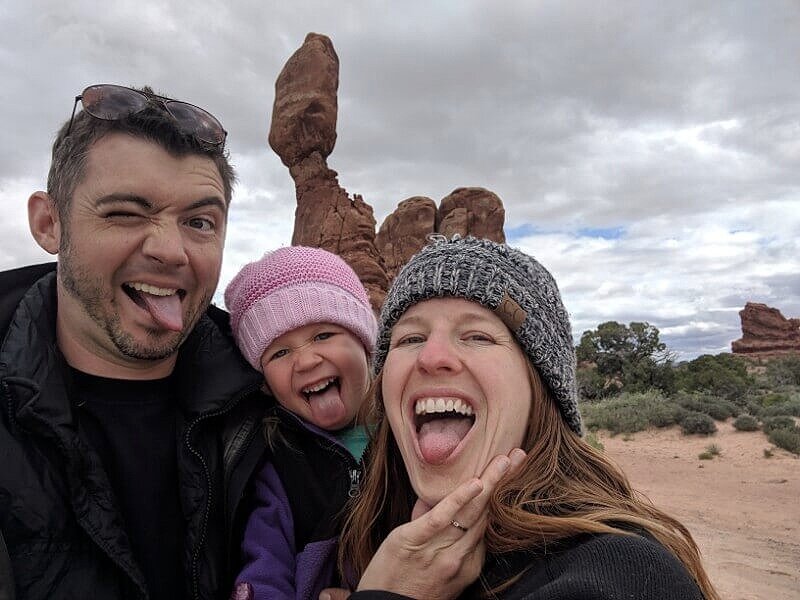
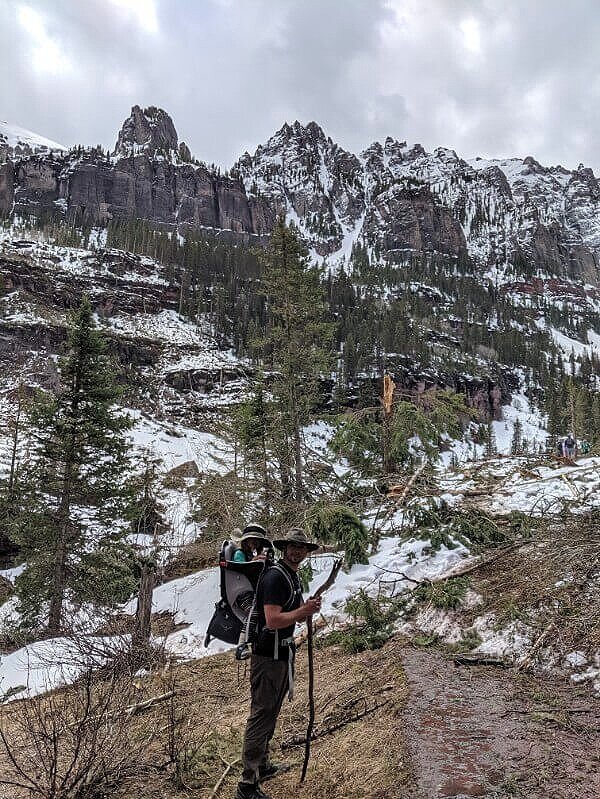
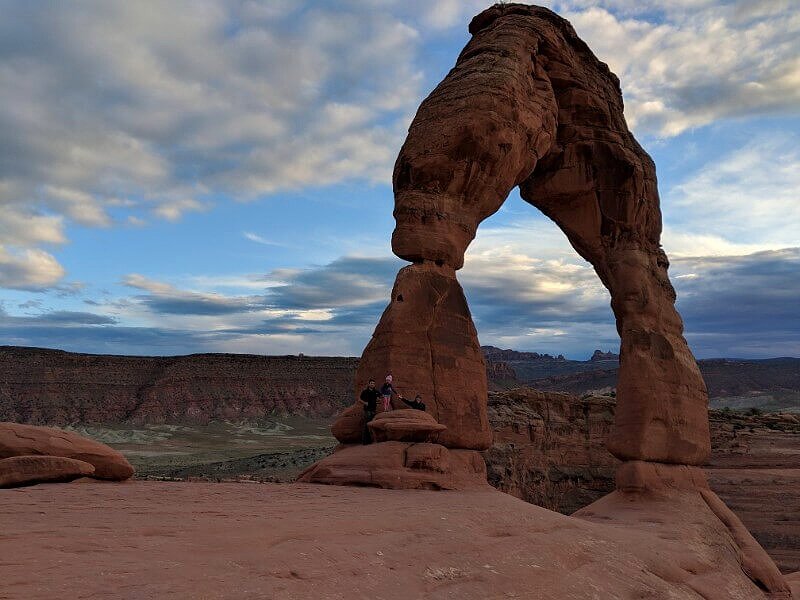
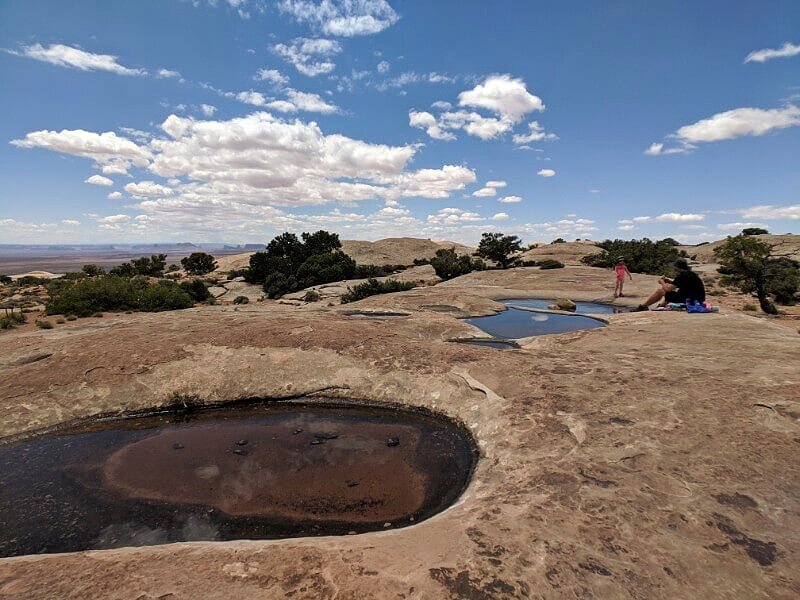
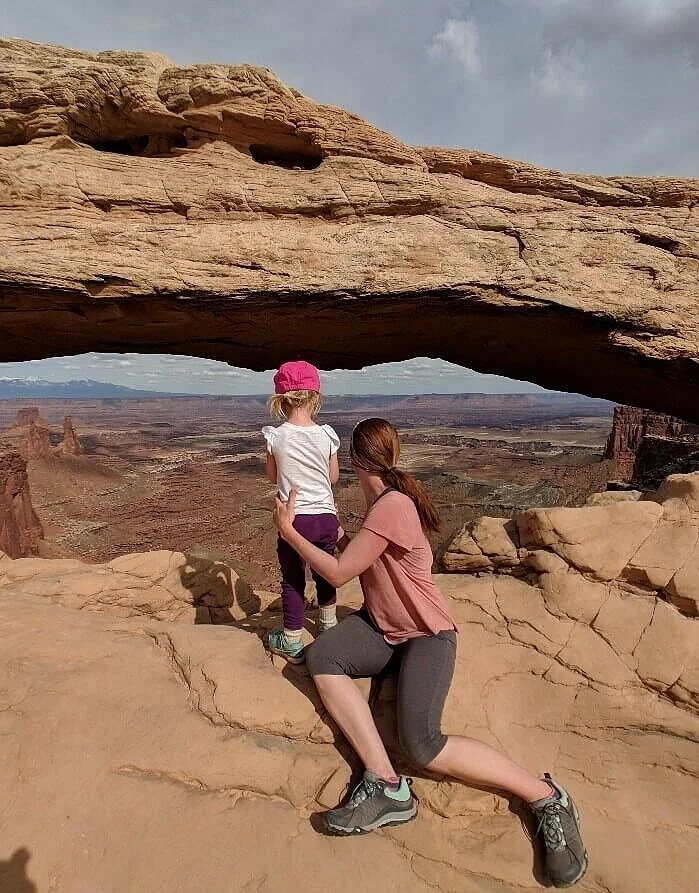
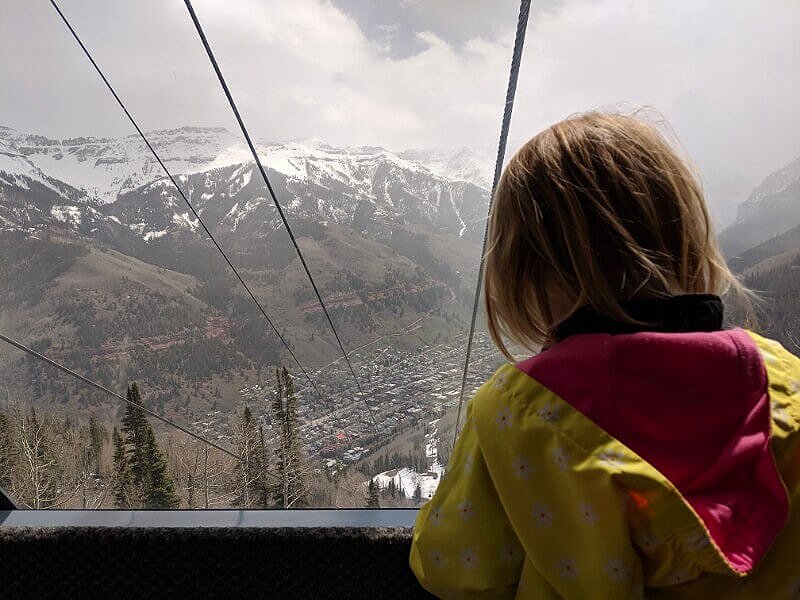
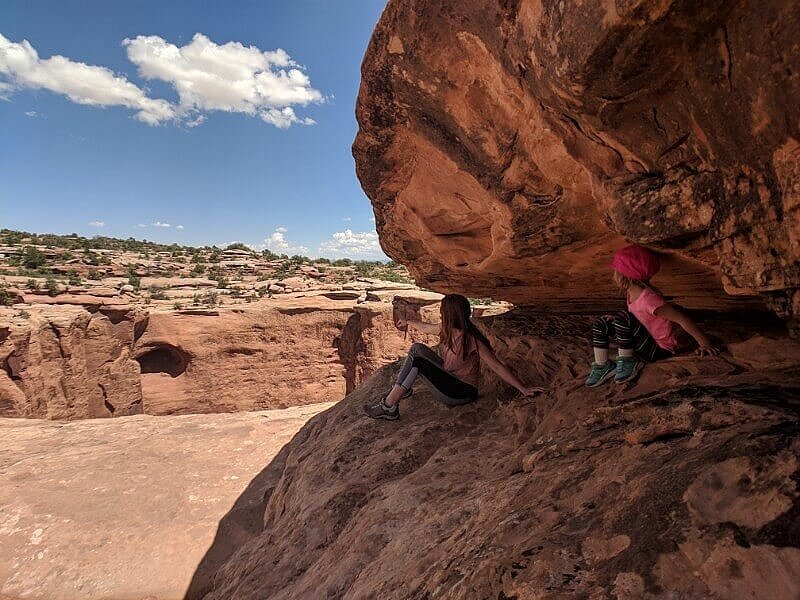
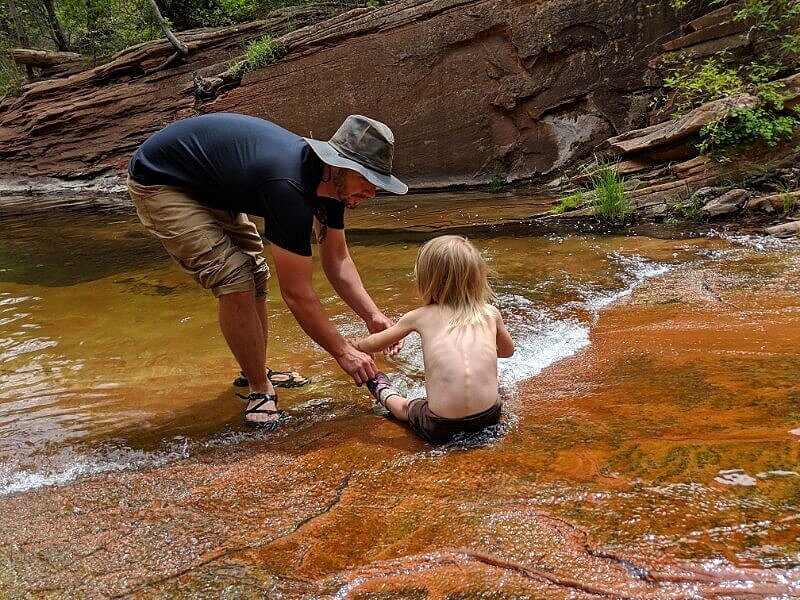
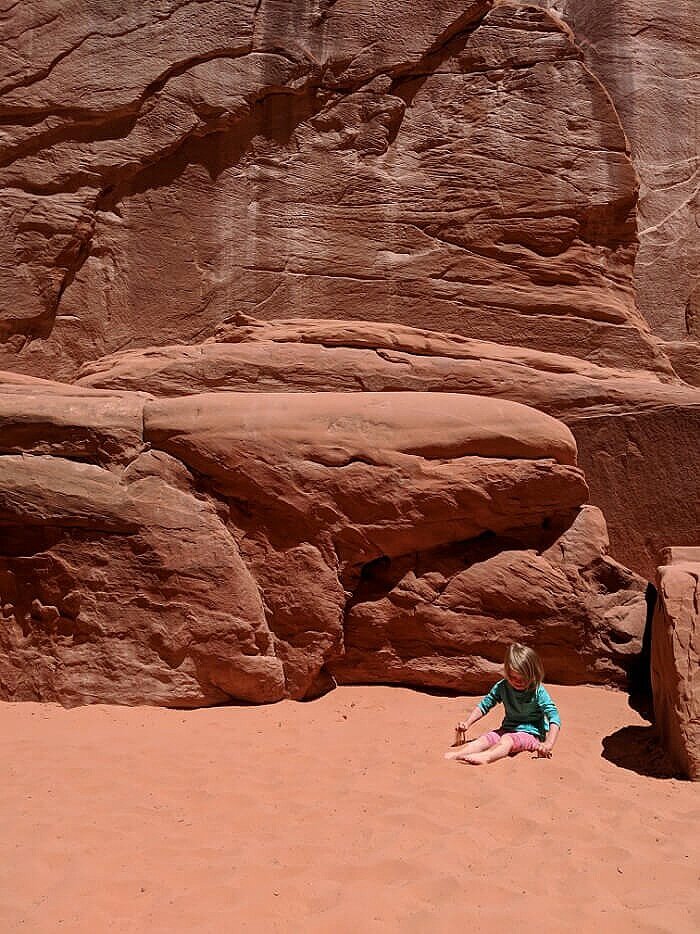
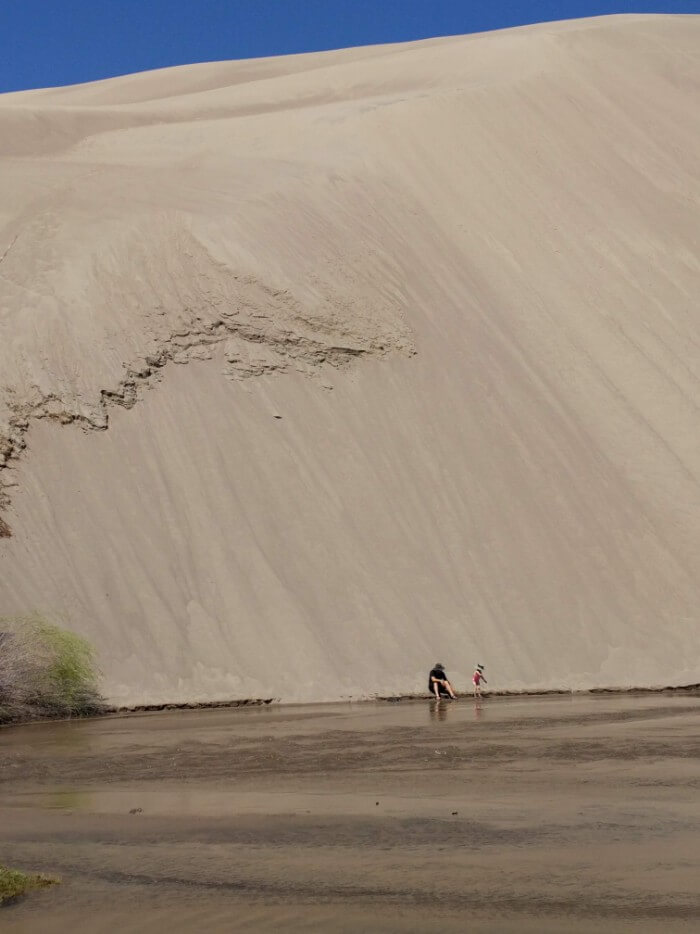
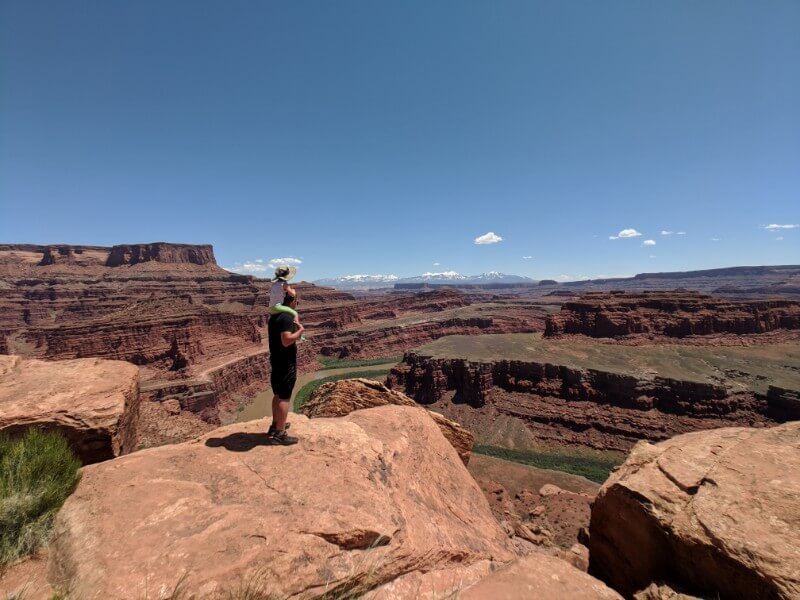
Now time to save up again and plan our next trip!
We hope that all this over-information can help you in planning for the cost of your next road trip adventure, as well as help show how far that budget can go, and maybe even find areas you can cut back further to save even more.
And if you’re interested in learning more about how to camp from a truck bed to save money, head over to - Everything You Need to Know About Truck Bed Camping.
As always, thanks for reading! And please SUBSCRIBE!
Related Posts:
Portable WiFi for Camping, Traveling, and Working Remotely [in 2020]
Here’s How to Survive a Road Trip With Your Baby or Toddler [44 Tips]
Add me to your Pinterest board!
We’d love for you to share this post with others! Thanks!






